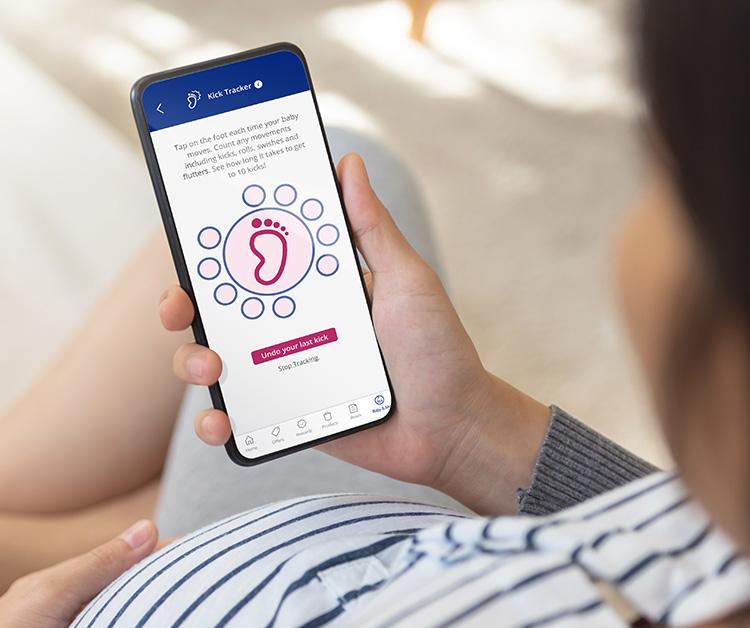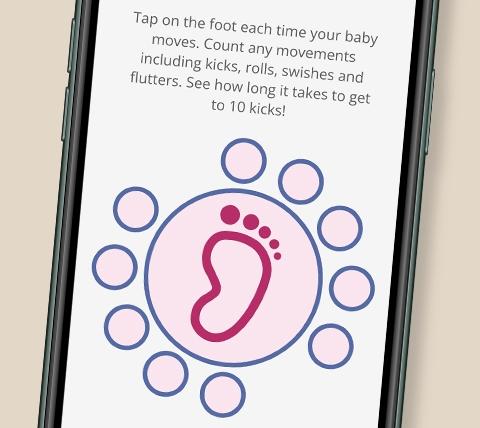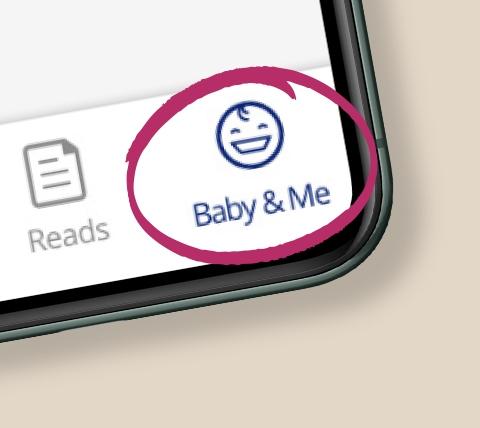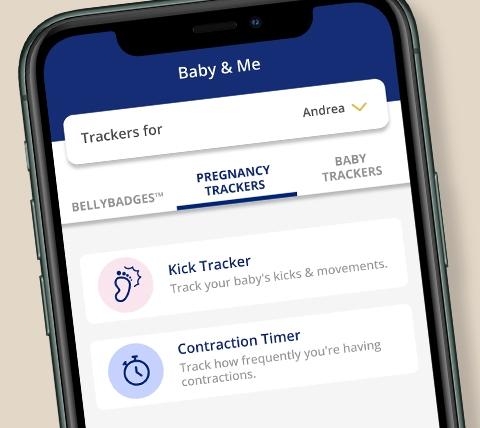
As you enter the later stages of pregnancy, feeling those tiny kicks and wiggles becomes more than just a heartwarming experience—it’s a key way to monitor your baby’s growth in the womb. Counting kicks and fetal movements helps you keep track of your baby’s movement patterns and monitor their development. In this article, we’ll explore why tracking fetal movements is recommended by healthcare providers and how using Enfamil’s Kick Tracker can give you peace of mind while supporting your pregnancy journey.
Many moms can expect to start feeling kicks between 16 and 22 weeks1:
Your doctor will be able to give you an idea of when you specifically should expect to feel your baby’s kicks, as every mom and every baby is different!
Counting your baby’s kicks is a simple and recommended way to keep an eye on your baby’s health during pregnancy. Experts suggest that regular kick counting helps you get familiar with your baby’s normal movements, especially in the third trimester when kicks become more noticeable.
Counting fetal movement is also an important way to catch potential issues early. If your baby suddenly moves less, it could indicate a situation that needs your doctor’s attention. By keeping track of your baby’s regular movement patterns, you can quickly notice if something changes. If your baby’s activity slows down or feels different, it’s important to contact your healthcare provider right away. This early awareness can help ensure the best care for both you and your baby, and using a pregnancy counter app, like Enfamil’s Kick tracker, can help you keep an eye on the big picture!
Enfamil’s Kick Tracker app makes monitoring your baby’s kicks simple and fun. Designed with parents in mind, the app offers intuitive features that make tracking easy for everyone, helping you keep a close watch on your baby’s movements.



Enjoy the quality time with your baby! We recommend using the Kick Tracker when your baby tends to be active.
All information on Enfamil, including but not limited to information about health, medical conditions, and nutrition, is intended for your general knowledge and is not a substitute for a healthcare professional's medical identification, advice, or management for specific medical conditions. You should seek medical care and consult your doctor or pediatrician for any specific health or nutrition issues. Never disregard professional medical advice or delay seeking medical treatment, care, or help because of information you have read on Enfamil.